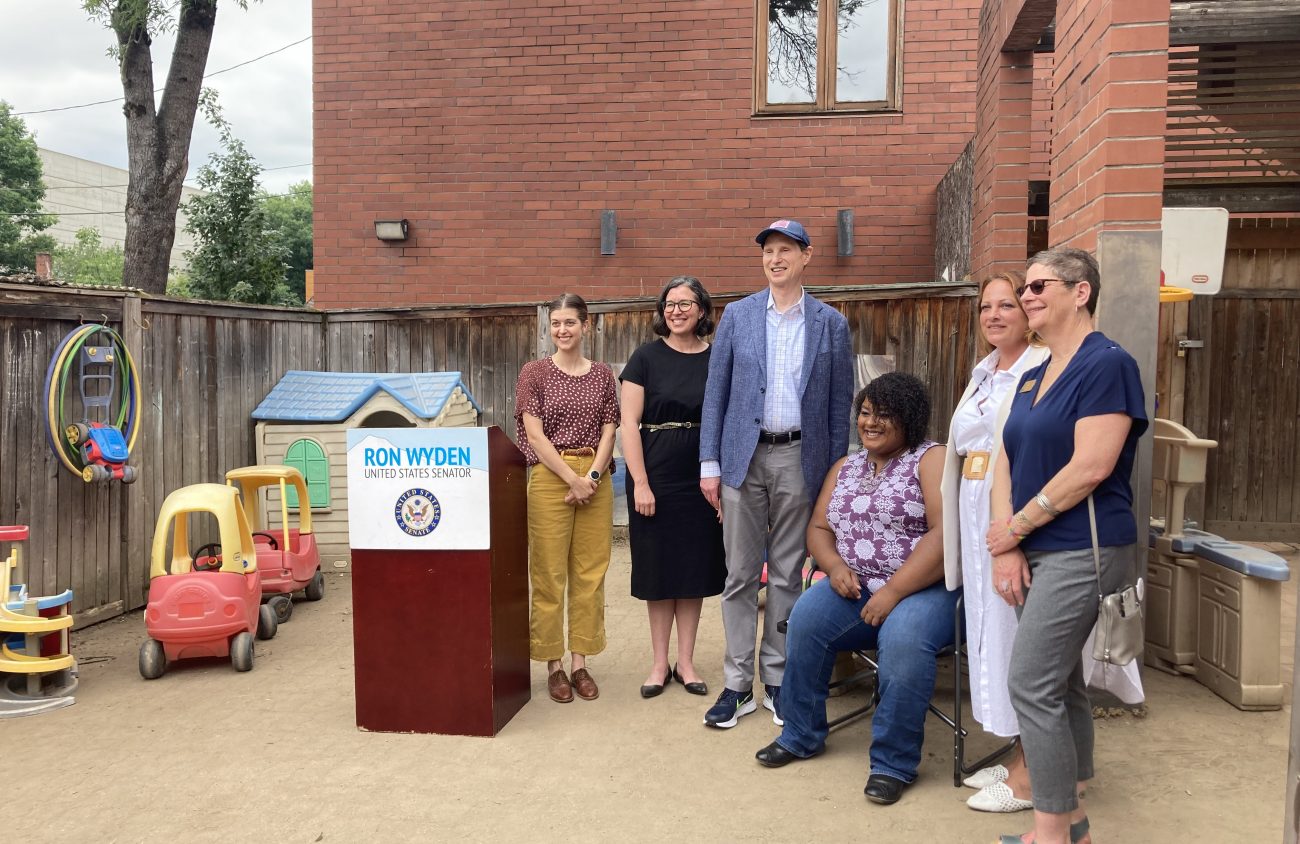U.S. Sen. Ron Wyden stood outside of the Oak Street Child Development Center building in downtown Eugene on June 30, surrounded by children’s toys and small plastic tables. Kids laughed and played in the background as he prepared to speak on the latest Senate legislation that works to ensure that all families have access to high-quality, affordable child care.
The Building Child Care for a Better Future Act was first introduced in late May, and is backed by Wyden and Sen. Elizabeth Warren. Since then, the bill has been read twice and referred to the Committee on Finance. It aims to allocate “mandatory funding to build child care availability over the long term and treat child care like the critical infrastructure that it is for families.”
The bill calls for $700 billion in spending and prioritizes funding for establishing neighborhood-based child care, renovation of child care facilities, recruiting staff, increasing worker compensation and funding child care development in low-income communities.
“There’s a direct link between physical infrastructure and investing in people,” Wyden said. “There’s a direct link between everybody looking at new careers after the pandemic, with more pay and more opportunity and child care.”
One speaker at the conference, Maisie Davis, is a mother of an 8-year-old son. Davis said that she has had trouble finding affordable child care, especially in the midst of the COVID-19 pandemic. However, she also said that child care has always been expensive, especially in the summer when school isn’t in session.
“You cannot imagine the stress this puts on you until you live it firsthand,” Davis said. “I can’t be a full-time mom, a full-time worker and a full-time educator. Our child care system must be better.”
Davis said that she was relieved to hear about the child tax credit included in the bill, and that the $200 monthly increase would allow her to take care of herself so that she wouldn’t “burn out completely.”
Andrea Paluso, executive director of Family Forward Oregon, said that limited and expensive child care takes not only a financial toll, but also a physical and mental health toll on mothers. Paluso also said that Black, Latinx and Pacific Islander women were hit hardest by job losses from the COVID-19 pandemic.
Family Forward Oregon is a grassroots organization in Oregon that works to organize mothers and caregivers to fight for economic justice.
“Investments in child care and paid leave grow our economy, while also addressing the ongoing inequities that women and families of color face,” Paluso said. “Child care is critical to building the system that families need as we recover from this crisis.”
Paluso said the pandemic exacerbated an issue with child care that already existed. Women, Paluso said, are disproportionately affected economically and mentally by the burden of not having child care. To diversify a male-driven workforce, Paluso said that it is critical to invest in the future of child care.
And Wyden said he plans to do that.
“You all are on the right side of history,” he says. “And as your United States senator, chairman of the Finance Committee, I’m going to be working with you every step of the way.”
